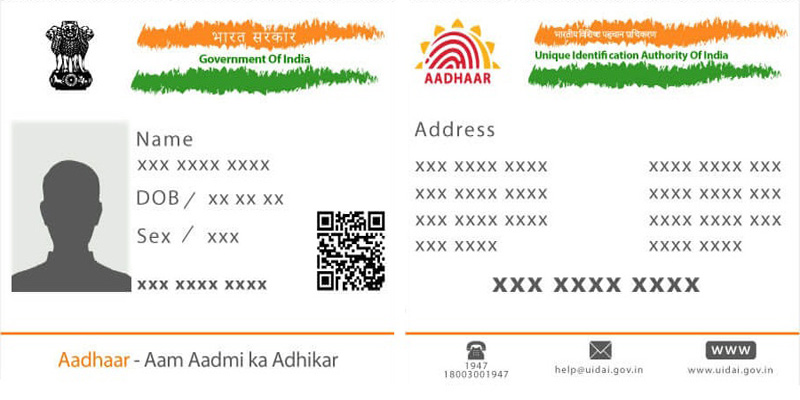Aadhaar deadline extended again
March 14, 2018 | Expert Insights

On March 13th, the five-member bench of the Supreme Court reviewing Aadhaar issues stated that the linking of Aadhaar cards to certain services will be postponed “till the matter is finally heard and the judgement pronounced”. However, citizens who intend to avail government subsidiaries and benefits will still be required to acquire Aadhaar proof before March 31st.
Background
Aadhaar, which means 'foundation' is a 12-digit unique-identity number issued to all Indian residents based on their biometric and demographic data. It is the largest online digital platform in the world. The data is collected by the Unique Identification Authority of India (UIDAI). The idea of the Aadhaar card was introduced by Nandan Nilekani on 26th November 2012. The vision behind it was to empower residents of India with a unique identity and a digital platform to facilitate authentication.
The Central Government contended before the Supreme Court on May 3rd, 2017 that it is mandatory for citizens to have a unique identification number and hence a person cannot refuse to provide their samples of fingerprints and iris. Indians had been given a deadline till December 31st to link their Aadhaar card numbers to their mobile phones and their banks accounts. There were 1.171 billion holders of the Aadhaar card number as of 15th August 2017.
In 2015, the Attorney-General of India declared that privacy was not a right protected by the Indian Constitution. This declaration was made during proceedings which challenged the Aadhaar Scheme. The Aadhaar (Targeted Delivery of Financial and other Subsidies, benefits and services) Act, 2016 provided legal backing to the Aadhaar project. The Act stated that the purpose of Aadhaar was to “provide for, as a good governance, efficient, transparent, and targeted delivery of subsidies, benefits and services… to individuals residing in India through assigning of unique identity numbers.”
However, in August 2017, the Indian Supreme court ruled that the right to privacy is “intrinsic to life and liberty”, confirming that right to privacy is a fundamental right protected under Article 21. Analysts noted that besides having an enormous impact on the protection of human rights, this ruling would also affect pending Aadhaar cases.
The Supreme Court had previously extended the deadline to link the Aadhaar number to public and private services, from December 2017 to March 31st, 2018.
Analysis
In light of the ruling that Right to Privacy is guaranteed by the Constitution, a five-judge Constitution bench of the Supreme Court began hearing petitions against Aadhaar in December 2017. This bench will decide on the constitutional validity of Aadhaar. The bench is headed by Chief Justice Dipak Misra, and includes justices A.K. Sikri, A.M. Khanwilkar, D.Y. Chandrachud, and Ashok Bhushan.
Academics and civil society groups alike have petitioned the court to stop the government from forcing people to link their Aadhaar number to access public services and benefits. These groups argue that Aadhaar infringes on the right to privacy. Additionally, a number of data leaks releasing personal details have been a cause for concern. India does not have any formal systems of data protection.
On March 13th, India’s highest court announced that the deadline to link Aadhaar with bank accounts, phones, and tatkal passports, would be extended “till the matter is finally heard and the judgement pronounced”. However, March 31st remains the deadline for all services under Section 7 of the 2016 Aadhaar Act. Citizens will therefore be required to link Aadhaar “for the purpose of establishing identity of an individual as a condition for receipt of a subsidy, benefit or service for which the expenditure is incurred from the Consolidated Fund of India”.
Rethink Aadhaar, a collective of activists opposed to the scheme, expressed “grave disappointment” at the interim order. “Today’s order has failed to provide these most vulnerable citizens of the country little protection or relief from disruption of the legal right and access to even basic social services,” they said in a statement.
A key requirement to obtain Aadhaar is proof of permanent residence, which excludes a large portion of the underprivileged in the country. Additionally, needy citizens have already been denied access to welfare services for not holding Aadhaar cards. This is despite a directive by the Unique Identification Authority of India (UIDAI) that “genuine beneficiaries” should not be denied access to services due to a lack of Aadhaar. Access to the Public Distribution System (PDS) makes up a large proportion of these denials. Other beneficiary services refused include pensions, school scholarships, housing schemes, MNGREGA employment, and healthcare.
Assessment
Our assessment is that on one hand, this ruling acknowledges the gravity of privacy concerns. It will provide interim relief to a number of citizens. On the other hand, it disregards the difficulties faced by the country’s disadvantaged, who rely heavily on government services. Aadhaar therefore remains a coercive measure for the needy. As stated before, we believe that there also remain a number of concerns regarding data security and identity theft.








Comments